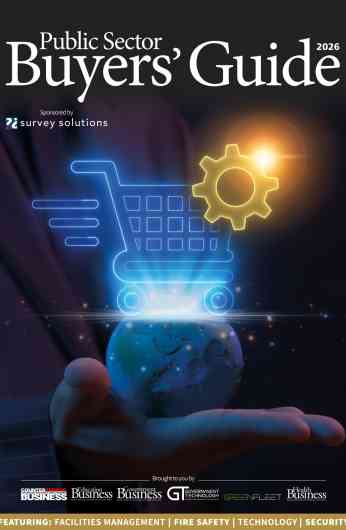
CT Awards Q&A: PSHE Association
Counter Terror Business talks to Anne Bell, a Subject Specialist at the PSHE Association – the national body for PSHE education, winners of a recent Counter Terrorism Education award for their preventative education work under Home Office BSBT funding
The topic of extremism and the radicialisation of children and young adults has taken on new importance during lockdown. Deputy Assistant Commissioner Lucy D’Orsi warned a few months ago that the coronavirus lockdown may have led more individuals to become radicalised as they spend more time online. Counter Terrorism Policing itself warned in April that the impact of coronavirus and social isolation could make some of society’s most vulnerable people more susceptible to radicalisation, as the number of people referred to the Prevent programme has fallen.
Merging two previous awards, the Counter Terrorism Project Award and the Education Project Award, the Counter Terrorism Education Award aims to recognise a governmental organisation or public/private partnership which has developed and implemented an effective counter terrorism strategy or awareness campaign.
The 2020 winner of the Counter Terrorism Education Award is the PSHE Association. Recognised for its counter extremism training programme, aimed at providing teachers with the confidence and skills to address key extremism-related topics in the classroom to bring into PSHE lessons, the programme also helps equip pupils with better awareness and understanding of extremist behaviour. A bespoke evaluation survey, carried out by the Home Office’s Building a Stronger Britain Together programme, found that the training and supporting resources led to significantly increased levels of confidence and improved skills in covering extremism-related topics in the classroom among teacher participants.
Here, we speak to Anne Bell of the PSHE Association about preventative education and a school-wide approach to incorporating radicalisation into teaching.
Just how important is it to address topics such as extremism and radicalisation in PSHE education?
Schools have a moral and legal duty to equip young people with the knowledge, skills and attributes to resist radicalisation and prevent extremism. Recruiters often target young people – particularly those already more vulnerable due to truancy or unstable living situations – so schools must provide opportunities to counter extremist messaging and offer support to prevent radicalisation.
Inspectors from Ofsted and the Independent School Inspectorate (ISI) expect schools to address this as a safeguarding issue and Government ‘Keeping Children Safe in Education’ guidance states that schools should ensure pupils are taught to safeguard themselves, including online.
PSHE (personal, social, health and economic) education is the school curriculum subject ideally placed to address this learning in a planned, safe, maturity-appropriate way. PSHE can teach young people about diversity, foster a sense of inclusion, and develop strategies to recognise and resist persuasive messaging promoted by extremist materials or recruiters.
Well-taught PSHE lessons provide a safe environment in which to challenge stereotypes and myths while fostering protective factors such as high self-esteem and positive relationships. PSHE cannot stop exposure to extremist ideologies, but it can equip young people with the qualities and abilities to help them recognise and resist such influences.
What difference does it/can it make for PSHE education to be taught as preventative education, rather than simply reactive?
There is a limit to what reactive PSHE learning can achieve. After a terrorist attack or extremist incident, emotions are heightened which makes it very difficult to deal with some of the more sensitive aspects of relevant PSHE topics. As discussed in the PSHE Association’s Discussion framework to be used in the event of a terrorist attack, the aim of learning at this stage would be to calm anxieties and challenge unhelpful stereotypes. At this time, non-curricular pastoral support would be a better context than PSHE lessons for any bereavement work, for example.
In contrast, a preventative programme can tackle discrimination before it has the opportunity to arise by promoting inclusion and teaching about the wider impacts of stereotyping and prejudice. It can teach young people strategies for managing feelings and emotions – including those related to grief and anxiety – and signpost relevant support networks, should they be required.
PSHE also has a role to play in reducing the likelihood that pupils will become involved in extremist activities in the future. This includes teaching how to resist influence and ensuring young people are aware of ways that adults and older teens can manipulate others – particularly online. This learning also has the benefit of being relevant to other grooming contexts. And such learning encourages pupils to fact-check and assess others’ statements – and motives – before acting; this includes developing an understanding of the media landscape, the power of peer influence and how social media can amplify falsehoods or dangerous rhetoric.
PSHE can also deliver extremism-specific learning on exiting difficult situations and on reporting concerns.
All these aspects and more can contribute to reducing the possibility of involvement in extremism, and therefore the likelihood of an extremist incident.

















